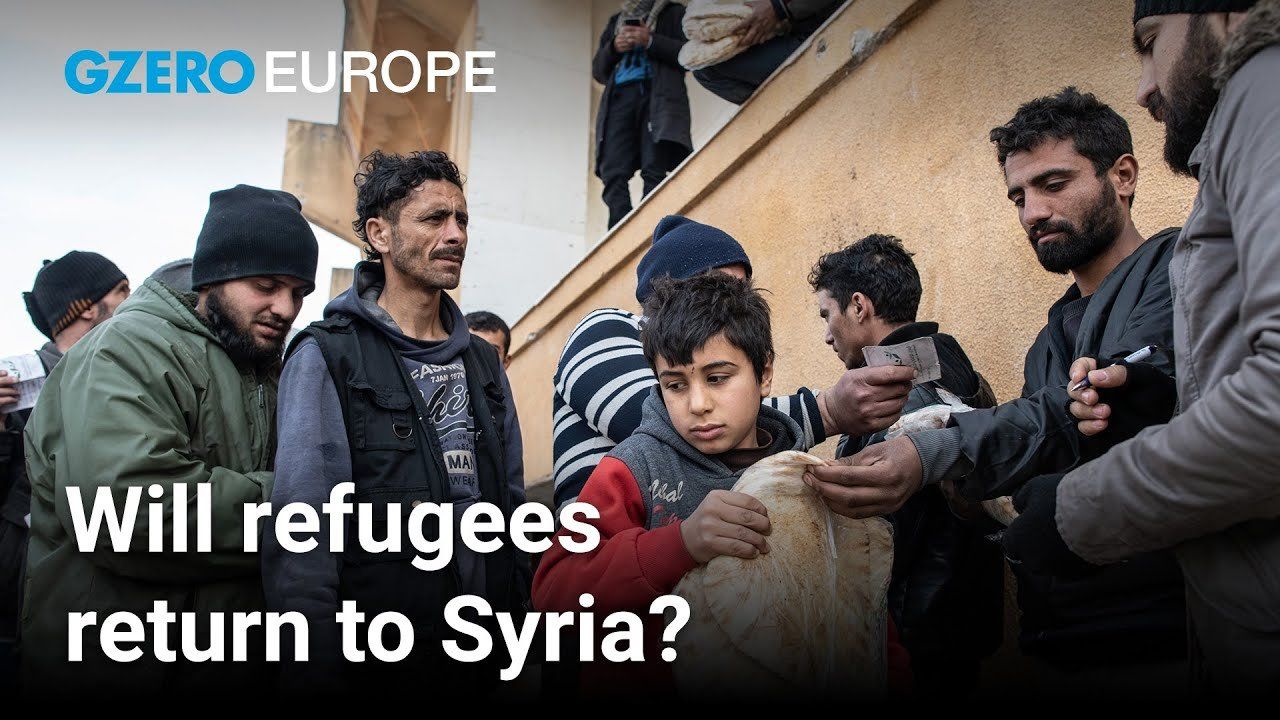December 11, 2024
Carl Bildt, former prime minister of Sweden and co-chair of the European Council on Foreign Relations, shares his perspective on European politics from San Francisco, United States.
with all of the millions of Syrian refugees that you find in Europe, what's got to be the consequences for them of the fall of the Assad regime?
Well, the first thing that's happened is that European countries have imposed new asylum applications from Syria. That's fairly logical. But the bigger question is, of course, to which is that it will be possible for these people to return. Very many of them want to. There have been a huge number of people who've already returned, primarily from Turkey. But that's going to be dependent upon stability in the governance of Syria. That's still an open question for that. And secondly, economic reconstruction. That is both humanitarian aid and then lifting eventually the economic sanctions so that there is the possibility of bringing the country back again and people having the possibility to go back. Let's see, let's hope, and let's work on that.
What's the nature of the big agreement that is now being concluded with the European Union and the Mercosur countries of South America?
It's been negotiated for a very long time. It's a free trade agreement. It's a partnership agreement. It is going to be the biggest such in the world. It's two huge economies. Significant benefits in reducing trade and opening up for more of trade to the benefit of the European economy, to the benefit of the economies of the Latin American countries. There's still opposition to it in some European countries, notably France. That has to do with the French farmers fearing competition from more competitive Brazilian perhaps beef or whatever it is. That, has to be said, is something that is good for the European consumers. So slight battle ahead inside the European Union, but hopefully it will go through. And as I said, the biggest such deal that the world has seen so far.
More For You
- YouTube
China was largely absent from the core conversations at the 2026 Munich Security Conference. That, says Ian Bremmer, is telling.
Most Popular
- YouTube
At the 2026 Munich Security Conference, Brad Smith announces the launch of the Trusted Tech Alliance, a coalition of global technology leaders, including Microsoft, committing to secure cross-border tech flows, ethical governance, and stronger data protections.
When the US shift from defending the postwar rules-based order to challenging it, what kind of global system emerges? CFR President Michael Froman joins Ian Bremmer on the GZERO World Podcast to discuss the global order under Trump's second term.
TODAY at 12 pm ET: Watch our Global Stage live premiere from the Munich Security Conference
Feb 13, 2026
Tune in today at 12pm ET/6pm CET for the live premiere of our Global Stage from the 2026 Munich Security Conference, where our panel of experts takes aim at the latest global security challenges. NY Times National Security Correspondent David Sanger moderates the discussion with Benedetta Berti, Secretary General, NATO Parliamentary Assembly; Ian Bremmer, President & Co-founder, Eurasia Group & GZERO Media; Dr. Wolfgang Dierker, Global Head of Government Affairs, SAP; and Brad Smith, Vice Chair & President, Microsoft.
© 2025 GZERO Media. All Rights Reserved | A Eurasia Group media company.
